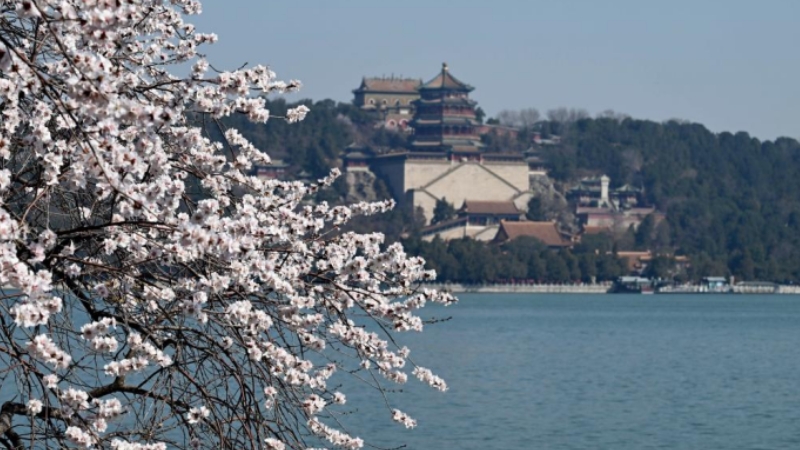Commentary: U.S. "world leadership" in the red
BEIJING, March 25 (Xinhua) -- U.S. politicians relish touting their country as the "indispensable" global leader, and with lofty slogans, empty talks and deadly bombs, they constantly remind other nations who is calling the shot.
Yet the world, once again reminded by the 21st anniversary of the U.S. invasion of Iraq and the risible third edition of the Washington-orchestrated "Summit for Democracy," has become ever more aware that the so-called U.S. "world leadership" is deep in the red.
For starters, in the face of international challenges, the United States has repeatedly failed to live up to the responsibility commensurate with the role it claims to play. Instead, it habitually leverages its dominance to pursue its hegemonic interests.
Take climate change as an example. As the whole world mobilizes to tackle this existential threat to humanity, the self-styled world leader, which is also the biggest air polluter in human history, has set a bad example by failing to ratify major multilateral environmental treaties and dragging its feet over meeting climate financing and green technology transfer commitments.
The ongoing heart-rending crisis in the Gaza Strip offers another glaring illustration. Prioritizing its geopolitical calculation, Washington has for multiple times vetoed UN Security Council draft resolutions that could have brought cease-fire and humanitarian aid to the war-torn Palestinian enclave.
Such an "America First" mindset is also flagrant in the financial and economic realms, where the United States has been exploiting the world to feed its hegemonic greed and fuel the massive apparatus it needs to support its dominance.
History is replete with examples of Washington using the dollar's supremacy in global trade to transfer its crises to emerging markets and developing countries, suppressing other nations' technological development in the name of national security, and sabotaging international trade rules to favor U.S. enterprises.
As regards global governance, the United States nowadays likes to talk about "a rules-based international order." Yet what it does has led the international community to an increasingly clear understanding of what the catchphrase truly means.
It "is in fact another version of power politics. This is an attempt to impose its will and standards on others and to replace commonly accepted international laws and rules with its own internal rules," Italian international relations expert Giancarlo Elia Valori said.
And the so-called "Summit for Democracy," a Washington-masterminded scheme whose third edition recently concluded in South Korea, has been widely criticized as an attempt to divide the world and provoke camp confrontation, which gives the lie to U.S. President Joe Biden's claim that "American leadership is what holds the world together."
The list of U.S. moves incompatible with the "world leader" laureate can go on and on. That reveals a superpower maneuvering to maintain its prerogatives but whose credibility has gone bankrupt in an era when, as U.S. economist Jeffrey Sachs has observed, the global landscape is evolving towards multipolarity, with Western dominance waning.
In light of global aspirations for peace and development, it is high time that U.S. decision-makers abandoned their obsession with being the "indispensable" leader and started to behave first like a responsible player.
Photos
Related Stories
- EU opens investigations into three American tech giants
- Rejection of U.S.-proposed draft resolution on Gaza ceasefire highlights its "increasing global isolation"
- Commentary: Washington's deadliest WMD
- Israel cancels delegation to Washington to discuss alternatives to Rafah attack
- Summit for Democracy, nothing short of a theater of the absurd
- Commentary: U.S. not a sincere mediator in Israeli-Palestinian conflict
Copyright © 2024 People's Daily Online. All Rights Reserved.









